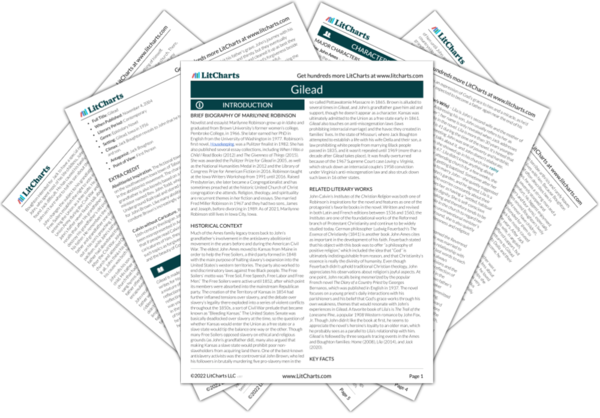John’s comment about the church’s steeple is a little hard to understand. He implies that, like steeples draw lightning, his father’s ministry—perhaps especially his preaching—tended to draw fire. This might be a way of suggesting that his father’s preaching was controversial. In any case, John also tells his son that he knows that the church, as a human institution, has its flaws. But in spite of this, he also wants his son to be open to the beauty and blessings to be found in its midst.
